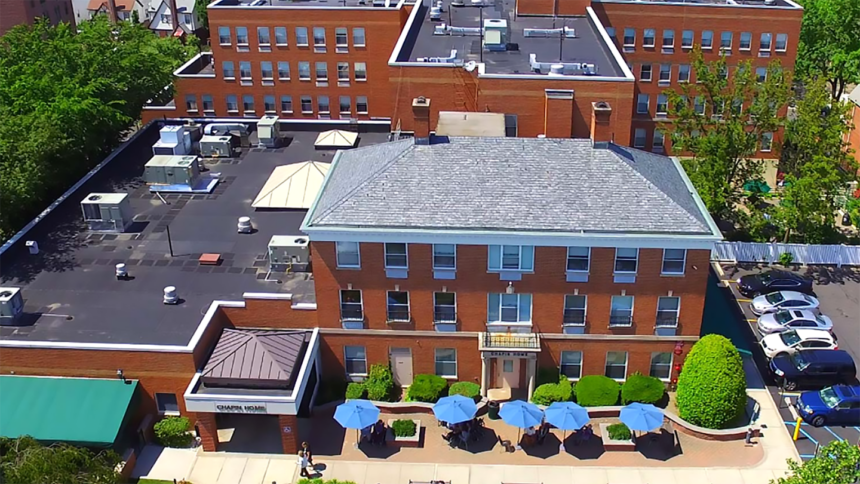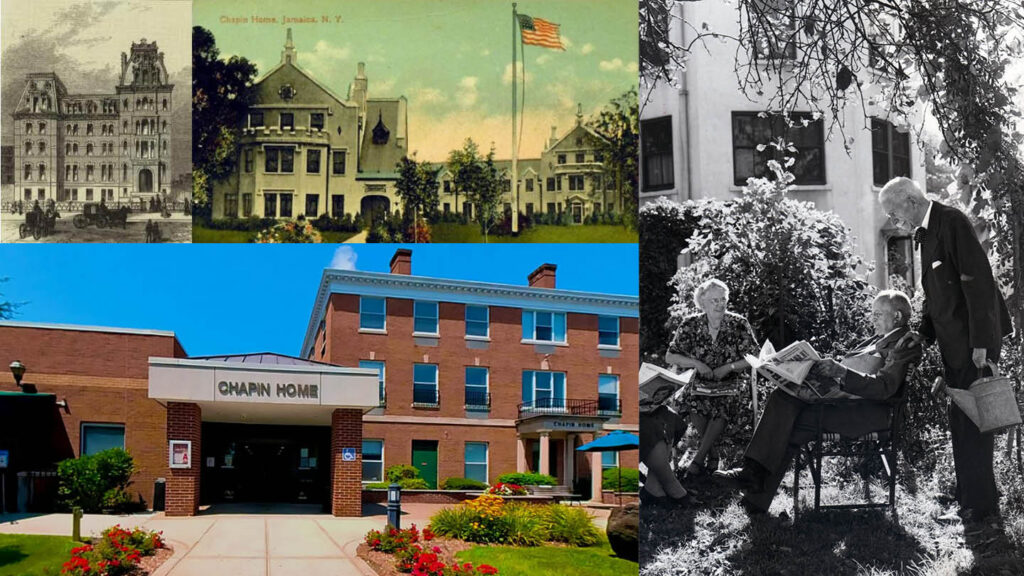
The Chapin Home has survived two pandemics, two world wars, the Great Depression and other economic calamities to serve the poor and ailing of New York City across three centuries.
Its mission has been tweaked since it opened as a Universalist Church-affiliated home shortly after the Civil War, yet Chapin has always welcomed residents in need, regardless of creed. But doing so, said Executive Vice President and Administrator Jennifer McManaman, has become much more challenging as competition has ratcheted up, staffing needs have exploded and payment has dwindled.
“We’ve been here all along, doing beautiful work consistently for so many people and our testimonials show that we have a gentle, kind way about doing our business. The board fully supports sometimes using our rainy day funds to keep these operations going in these ways,” McManaman told McKnight’s Long-Term Care News Thursday.
“But it’s been raining for four years. It’s been hard on us and for other not-for-profits who are going under rapidly and it’s heartbreaking. It’s absolutely devastating to hear because there’s so few of us left,” she added.
Where once its founders hobnobbed with the likes of the Carnegies and the Rockefeller, those connections are long gone. Big-time philanthropists aren’t dropping cash on nursing homes, said McManaman.
Neither are state officials who today are responsible for funding the majority of nursing home care.
And in its quest to remain independent and in control of its spending, Chapin has also been locked out of some preferred provider networks or health system financial partnerships that help keep some skilled nursing providers afloat.
Budget and staffing concerns
Chapin serves mostly chronically ill and cognitively impaired geriatric patients, and about 80% of residents rely on Medicaid. But state Medicaid rates hadn’t increased significantly since 2007, outside of a single cost of living bump in 2023.
That led to a major battle at the statehouse this year. Providers sought more than $500 million in new funding; the governor’s budget included about $285 million.
The state has seen 75 nursing homes close permanently over the last two decades, with 20 of those coming since 2020, according to a March report by the New York Providers Alliance.
In addition to being squeezed financially, providers are also facing state and federal staffing mandates at a time when they can’t hire enough people to fill their beds.
Chapin could serve 220 residents, but McManaman had to close an entire unit due to staffing shortages. The inability to grow her census and operate at high patient volumes makes financial viability that much more daunting.
One of the nursing home’s biggest success stories is its 35-resident neighborhood designed for residents with dementia. The services are in high demand, and the unit is always full, McManaman said.
But she’d need too many specialized staff to create another, similar neighborhood, and without better state support and a more stable referral source, other challenges might also get in the way of a larger program.
Success on shoestrings
Chapin has turnover rates well below state and national averages and the staff includes nurses and aides who’ve been there since before McManaman was hired in 1995. Nursing staff is unionized, and Chapin has tapped its rainy day fund to pay for raises that have been negotiated during and since the pandemic.
There’s also an effort to make staff feel at home, one that includes special events (an upcoming 155th Chapin birthday party among them) and one free meal per shift.
But outside of frontline staff, the facility is trimming when and where it can.

“We are as lean as it can possibly get administratively,” McManaman said. “We wear many hats and we do many jobs. I don’t have every single position filled because I can’t find those people, and I can’t afford them. I’m not going to be overpaying someone to just come in — that’s bounty money. I can’t even validate it. No one’s supposed to be walking away with massive salaries. … We’re not getting rich doing this. Any money that we make goes right back into this home for these residents. This is their house.”
And a beautiful house it is, capturing both its roots (a Bible from the 1880s and other historic items are on display in the main lobby) and its future (visitors will find QR codes leading to a gleaming new website meant to drive self-referrals).
But in some ways, Chapin now finds itself squeezed out of the modern nursing home operating environment. It does have some agreements with managed care providers, but there are no ownership ties or resources shared with local hospitals or assisted living facilities that might be routine referral resources.
“We are in this on our own and that’s what makes us so unique,” McManaman said. “It was our stronghold for a long time because we could do it the Chapin way, which was always elevated and elegant but still within the forms of regulations. But now we’re on the outside of all these wonderful beautiful connections that other places have.”
Best kept secret
Being “the best kept secret in Queens” cuts both ways.
With its endowment shrinking and having sold off some of its property in previous hard times, the future in some ways looks bleaker than it has in a long time.
And yet, McManaman is resolute that if she can get enough patients to her campus, the four-star rated Chapin will rise like a phoenix again. Just as important as a major budget bump, she said, is for more patients to have “fair access” to Chapin after an acute stay. Currently, she gets many of her residents when they have exhausted their Medicare benefits and are transitioning to long-term care.
“I’m hoping that consumers will be able to ask for Chapin when they want a non-for-profit, when they want to come to a mission-driven nursing home, that they’ll be given that opportunity. Sometimes we feel recently they’ve been steered away from us,” McManaman said.
“With everything Chapin has been through, this can’t be the worst,” she added. “They say smooth seas don’t make good sailors. Well, we’re in tough waters right now, but we are also up to the task. We are rising up to fight the good fight and hang in there.”




